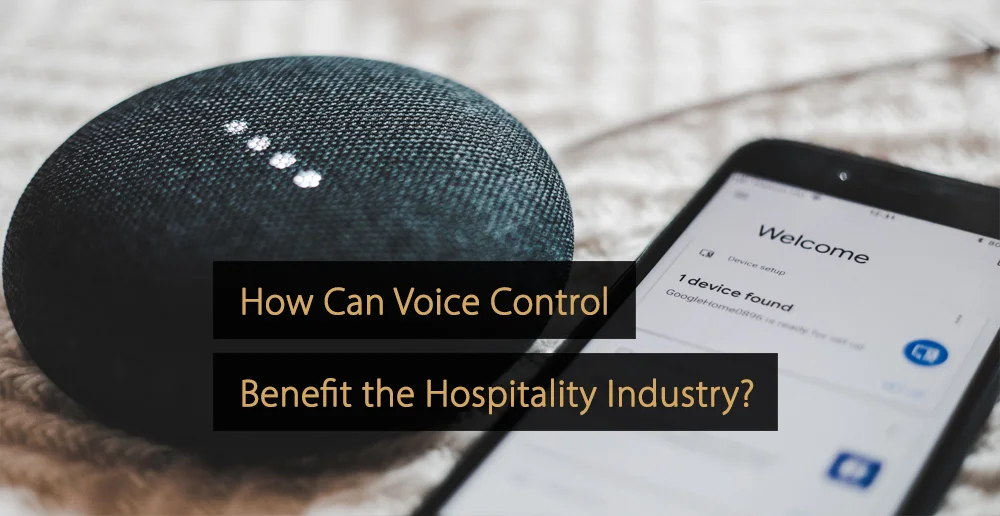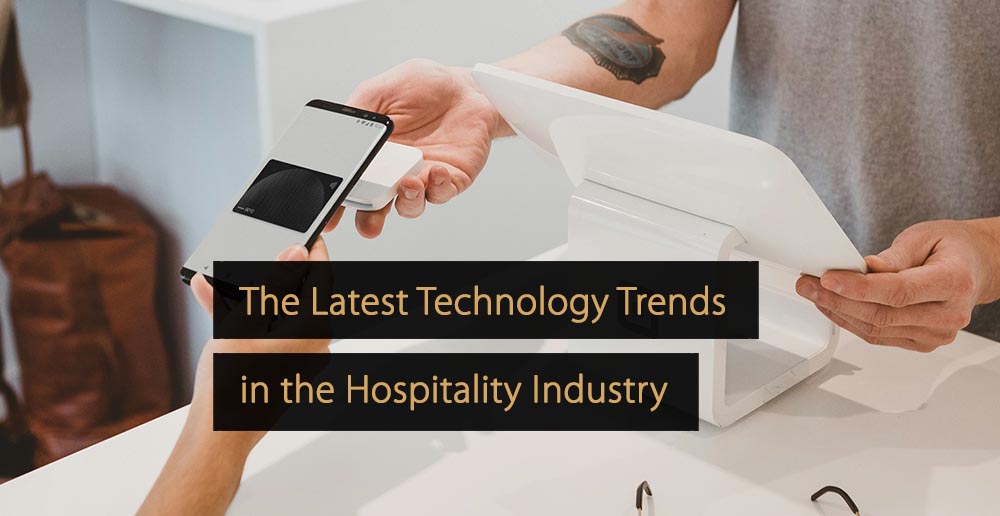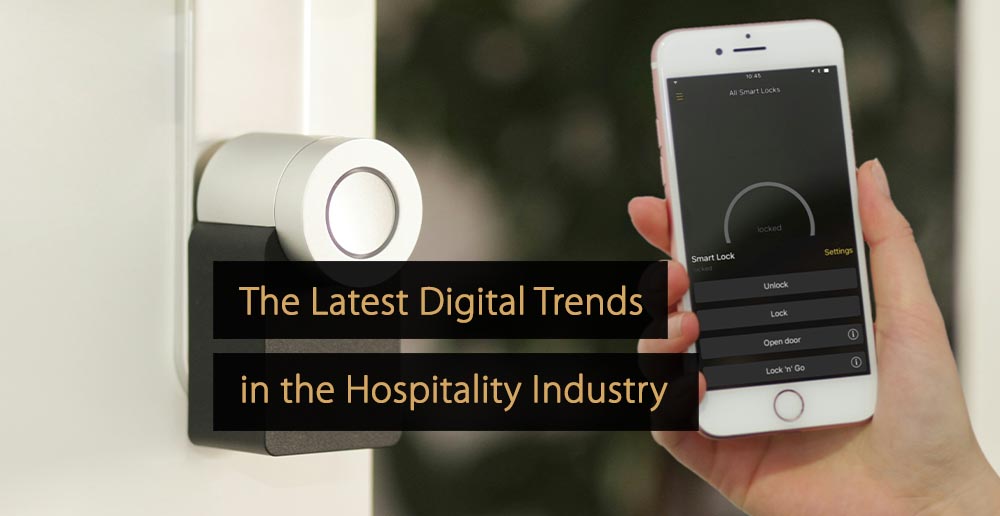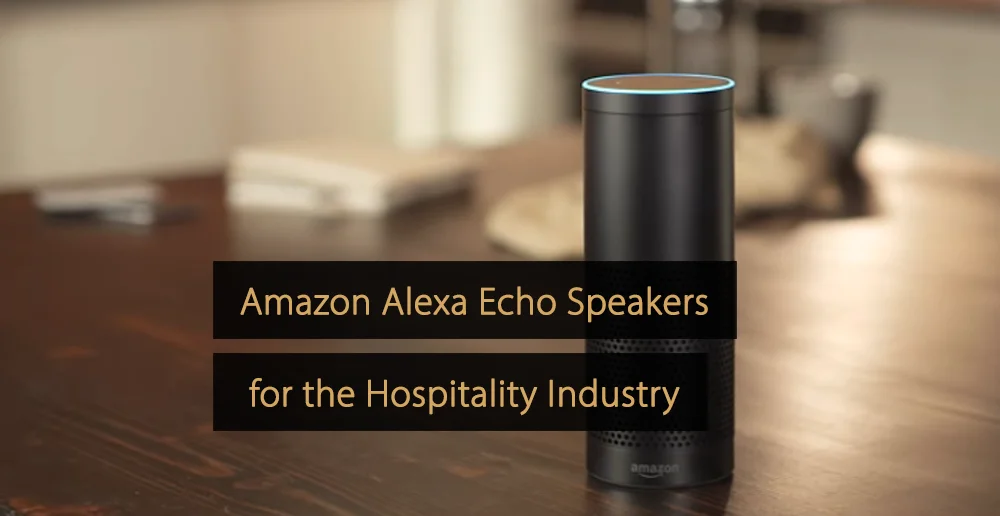Successful leaders in hospitality management understand the importance of embracing new technology, especially when it can improve the customer experience. One example of a technology trend that has seen increased adoption rates in recent times is voice control technology, which can significantly benefit hotel owners. In this post, you will learn more about how voice control works and some of its key benefits.
Table of Contents:
- Voice Control: In a Nutshell
- How Does Voice Control Technology Work?
- Benefits of Voice Control in the Hospitality Industry
- Examples of Voice Control Devices
- How Voice Control Works in the Hospitality Industry
- Privacy Concerns and Possible Solutions
Voice Control: In a Nutshell
Voice control is a type of voice recognition technology that enables devices like smartphones, smart TVs, and home hubs to understand spoken words and be controlled through simple voice commands and responses. This eliminates the need for users to perform more traditional control tasks, such as pressing buttons.
The extent of voice control capabilities can vary from one device to another. Some devices can simply be turned on or off through a ‘wake up’ and ‘sleep’ command, while others can perform intelligent tasks, provide real-time information, or even control other devices in the nearby vicinity.
How Does Voice Control Technology Work?
Voice control relies on artificial intelligence, allowing voice-controlled devices to recognize speech patterns, understand specific patterns as commands, and respond to those commands appropriately. Voice-controlled devices are usually also connected to the Internet.
More recently, the rise of the Internet of Things, or IoT for short, has led to the emergence of ‘smart’ devices that can send and receive data. One result of this technology is the ability of certain voice-controlled devices, such as phones or smart hubs, to influence or control nearby technology.
For example, a smart hub may connect to a smart TV, lighting, and heating or ventilation systems, allowing all of those things to be controlled through voice commands given to the hub. According to the Voice And Speech Recognition Report by Grand View Research, the global voice and speech recognition market is projected to grow at a CAGR of 14.9% until 2030.
Benefits of Voice Control in the Hospitality Industry
1. Personalization
The primary use of voice control technology within the hospitality industry involves improving the personalization offered to customers. Voice-controlled smart hubs can be included in hotel rooms, allowing customers to easily adjust the room temperature and lighting levels or utilize entertainment devices, all through speech.
Such technology can also provide the names of guests, making the entire experience more individual.
2. Customer Experience
Voice control can also help those in the hospitality industry deliver a superior customer experience by shortening response times, streamlining booking processes, and allowing customers to request room service or fresh towels without needing to leave their room or lift a finger.
Smart hubs can be connected to company booking processes, enabling a customer to quickly reserve a table at the restaurant through a few simple voice commands or obtain an electronic key card to access the gym. Meanwhile, tourist information or weather forecasts can be provided immediately, at any time of the day or night. Best of all, this information will be up-to-date, making it more accurate than a human interaction would be.
Table: How Voice Search Improves Customer Service in the Hospitality Industry
| Aspect | Description | Implementation in Hotels |
|---|---|---|
| Personalized Room Controls | Integration of voice-controlled devices in hotel rooms to allow guests to adjust room temperature, lighting, and entertainment systems. | Installation of smart speakers or voice-enabled devices in guest rooms for personalized control and convenience. |
| Seamless Guest Services | Implementation of voice-activated concierge services to provide guests with instant assistance and information, such as local recommendations and hotel amenities. | Integration of voice-enabled virtual assistants at the front desk or via mobile apps to facilitate guest inquiries and requests. |
| Enhanced Accessibility Features | Utilization of voice-controlled devices to enhance accessibility for guests with disabilities, allowing them to operate room amenities and request assistance easily. | Installation of voice-activated features in accessible rooms, such as voice-controlled door locks, blinds, and emergency call systems. |
3. Marketability
Finally, voice control technology is still enough of a novelty that those in the hospitality industry can use it for marketing purposes. They can differentiate themselves from competitors and promote themselves as a forward-thinking, technology-literate brand that can offer customers a cutting-edge experience.
Videos of voice control technology can be used across hotel booking websites, and the technology’s benefits for the customer can be referenced in other promotional material, helping the hotel stand out.
Examples of Voice Control Devices
There are a huge number of devices or objects that have voice control components, with examples ranging from smartphones and smart TVs, to vehicles and machines. However, in the hospitality industry, voice control primarily centers around smartphones, tablets, smart hubs, and other devices.
According to the Smart Speaker Market Analysis Report by Fortune Business Insights, the global smart speaker market size is projected to grow at a CAGR of 21% until 2028.
Various companies have developed personal assistant technology powered by voice control, including Google Assistant, Siri, Alexa, and Cortana. Among the best-known and most popular voice-controlled smart hubs are Amazon Echo, Google Home, and Apple HomePod, which can all interact with other devices.
How Voice Control Works in the Hospitality Industry
One of the best examples of voice control in the hospitality industry is Amazon’s Alexa for Hospitality service. It is based on Amazon Echo technology but can be tailored for each hotel. As a result, guests can speak to the device and control various aspects of their room, such as lights, heating, and music.
Several hotel chains, including Marriott, have already adopted the technology, and Amazon will expand it in the near future. The technology will allow guests to connect their Amazon accounts to the hub, meaning they can easily access their personal music collections or audiobooks and play them through the device.
Video: Voice control by Alexa for Hospitality
Privacy Concerns and Possible Solutions
Although it is becoming more widespread within the hospitality sector, voice control poses some privacy issues. Most devices that use voice control work by constantly listening out for a ‘wake word’; many also record or stream voice commands, which can be scary for some users.
With that being said, there are ways to reassure guests. In the case of the Alexa for Hospitality offering, voice commands are automatically deleted every day, and hotel owners can also perform a remote clearance between guests as an additional precaution. Moreover, the microphone can be easily turned off, so it no longer listens.
Nevertheless, one of the best ways for a hotel to guarantee the privacy of its guests is by offering them the option to opt out of voice control elements entirely. This also has the added benefit of helping to build trust.
Voice Control Hospitality Industry FAQs
Voice control technology can greatly benefit those in the hospitality industry, helping boost personalization and improve the customer experience. However, while the technology enjoys popularity with most guests, privacy concerns need to be considered for implementation to succeed.
More Technology Trends
With digital technology continuously evolving, it should come as little surprise that its applications in the travel and hospitality industry also evolve. In the following articles, we piled up the most innovative digital trends in the hospitality industry.
- How to Use Artificial Intelligence in the Hospitality Industry
- How Augmented Reality is Transforming the Hospitality Industry
- How Virtual Reality (VR) Can Enrich the Hospitality Industry
- Examples of Robots Being Used in the Hospitality Industry
- Blockchain Technology and Its Uses in the Hospitality Industry
- How the Internet of Things (IoT) Can Benefit the Hospitality Industry
- Use Cases of Facial Recognition in The Hospitality Industry
- Smart Hotel; What Are the Benefits for Hotel Owners and Guests?
- Ways to Transform a Hotel Room Into a Smart Room
More Tips to Grow Your Business
Revfine.com is the leading knowledge platform for the hospitality and travel industry. Professionals use our insights, strategies, and actionable tips to get inspired, optimize revenue, innovate processes, and improve customer experience.Explore expert advice on management, marketing, revenue management, operations, software, and technology in our dedicated Hotel, Hospitality, and Travel & Tourism categories.
This article is written by:
Hi, I am Martijn Barten, founder of Revfine.com. With 20 years of experience in the hospitality industry, I specialize in optimizing revenue by combining revenue management with marketing strategies. I have successfully developed, implemented, and managed revenue management and marketing strategies for individual properties and multi-property portfolios.









Leave A Comment